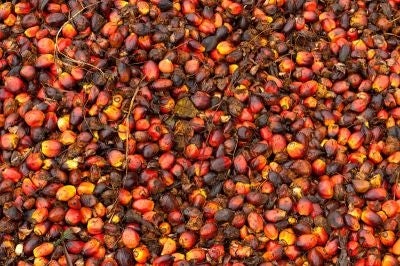Your support helps us to tell the story
From reproductive rights to climate change to Big Tech, The Independent is on the ground when the story is developing. Whether it's investigating the financials of Elon Musk's pro-Trump PAC or producing our latest documentary, 'The A Word', which shines a light on the American women fighting for reproductive rights, we know how important it is to parse out the facts from the messaging.
At such a critical moment in US history, we need reporters on the ground. Your donation allows us to keep sending journalists to speak to both sides of the story.
The Independent is trusted by Americans across the entire political spectrum. And unlike many other quality news outlets, we choose not to lock Americans out of our reporting and analysis with paywalls. We believe quality journalism should be available to everyone, paid for by those who can afford it.
Your support makes all the difference.A new report by environmental organization WWF examines the threat faced by the unique species of New Guinea, over 1,000 of which were discovered as recently as 1998-2008. The report identifies the production of palm oil as one of the major threats facing the wildlife of New Guinea; however there are several steps consumers can take to ensure that foods containing palm oil come from sustainable sources.
Palm oil is one of the few vegetable oils high in saturated fats and is extracted from the oil palm tree; the production of the oil has long been a source of contention among environmental groups and was identified in a WWF report, released June 27, as one of the major threats to wildlife in New Guinea.
The report; titled "Newly discovered species of New Guinea (1998-2008) ," states that over the period 1998- 2008 a total of 1,060 new species were discovered on the island. In addition the island is thought to be home to between six and eight percent of the world's species, and two thirds of wildlife on New Guinea is believed to be unique to the area.
To combat the threat posed to these species and others around the world by continuing unsustainable production of palm oil, consumers can ensure they buy from companies registered with RSPO.
The RSPO, or Roundtable Sustainable Palm Oil, provides certification to companies which produce palm oil from sustainable resources and ensures that all aspects of the production are environmentally friendly.
Consumers can find retailers in their country selling products made with RSPO certified palm oil by searching the organization's website for certified companies by type, country, and name. In addition to searching the RSPO website, consumers can look for the RSPO trademark - palm tree leaves surrounded with the words "certified sustainable palm tree oil" - which will begin appearing on products by the end of this year.
WWF- http://wwf.panda.org/
RSPO search of companies - http://www.rspo.org/?q=page/792

Join our commenting forum
Join thought-provoking conversations, follow other Independent readers and see their replies
Comments